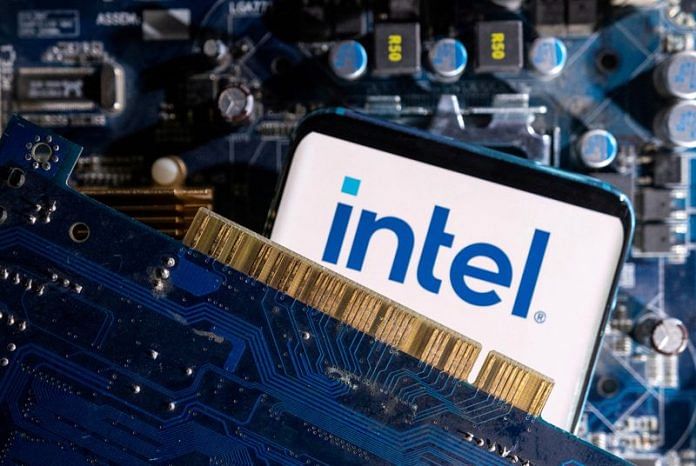By Jonathan Stempel
(Reuters) -Intel was sued on Wednesday by shareholders who said the Silicon Valley chipmaker fraudulently concealed problems that led it to post weak results, slash jobs and suspend its dividend, and caused its market value to sink more than $32 billion in a single day.
The proposed class action against Intel, Chief Executive Patrick Gelsinger and Chief Financial Officer David Zinsner was filed in San Francisco federal court.
Shareholders said they were blindsided when Intel revealed on Aug. 1 that its so-called foundry business for making chips on contract for outsiders was in their words “floundering,” costing billions of dollars extra even as revenue declined.
They said the Santa Clara, California-based company’s materially false or misleading statements regarding the business and its manufacturing capabilities inflated its stock price from Jan. 25 to Aug. 1.
Intel had no immediate comment.
The lawsuit came after Intel said last Thursday it would lay off more than 15% of its workforce, or more than 15,000 jobs, and suspend its dividend starting in the fourth quarter as part of a restructuring meant to save $10 billion in 2025.
Intel also posted a $1.61 billion second-quarter net loss, as revenue fell 1% to $12.83 billion.
The company has struggled to fend off competition from rival chipmakers and benefit from growth in artificial intelligence.
Among its rivals are Advanced Micro Devices, Nvidia NVDA.O>, Samsung Electronics and Taiwan’s TSMC.
Intel’s share price tumbled 26% to $21.48 on Aug. 2, the day after it announced quarterly results, the job cuts and the dividend suspension.
The shares closed Wednesday down 3.6% at $18.99 and have fallen 34.6% since the announcement.
The case is Construction Laborers Pension Trust of Greater St. Louis v Intel Corp, U.S. District Court, Northern District of California, No. 24-04807.
(Reporting by Jonathan Stempel in New York; Editing by Chris Reese and David Gregorio)
Disclaimer: This report is auto generated from the Reuters news service. ThePrint holds no responsibilty for its content.






